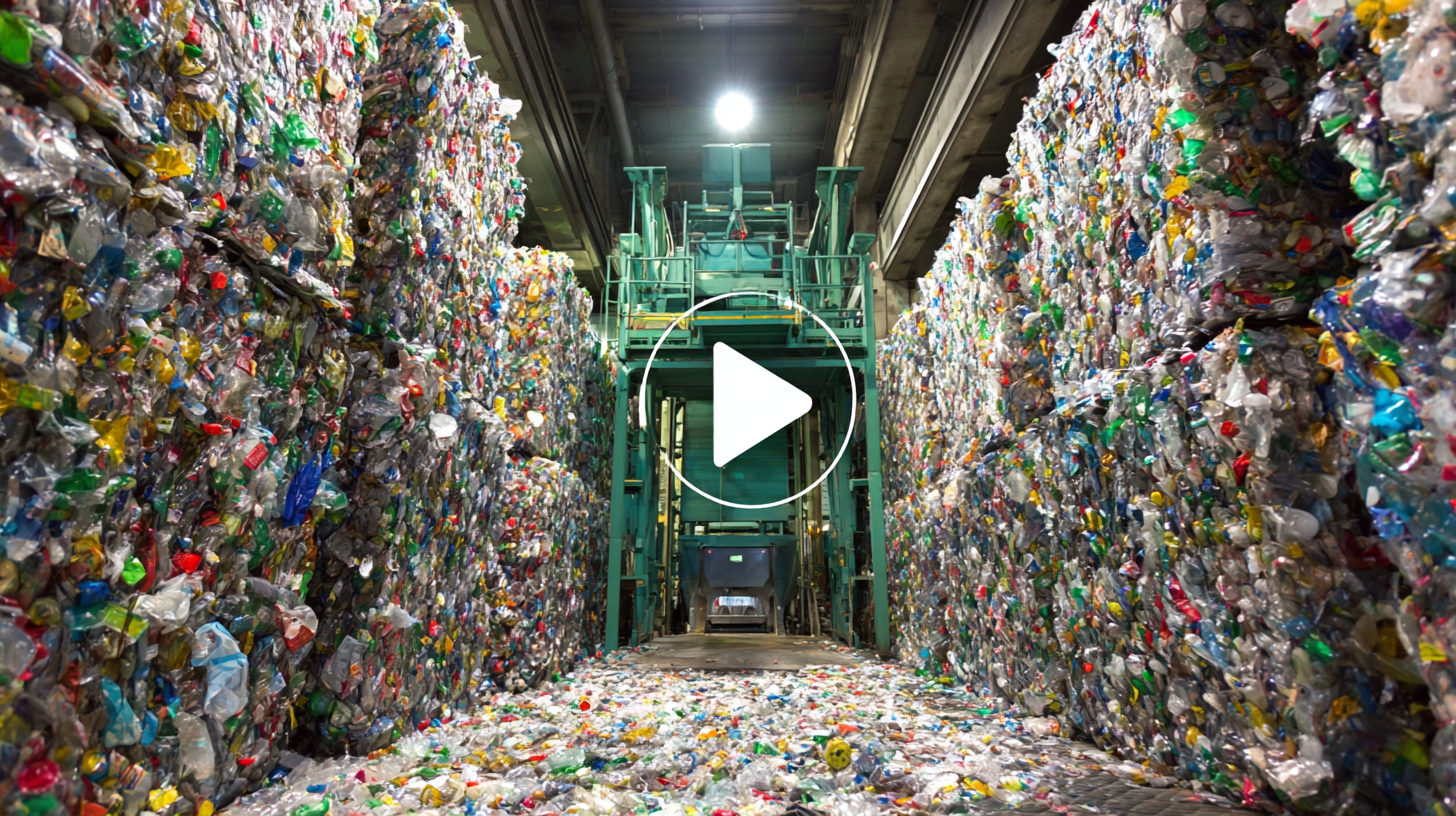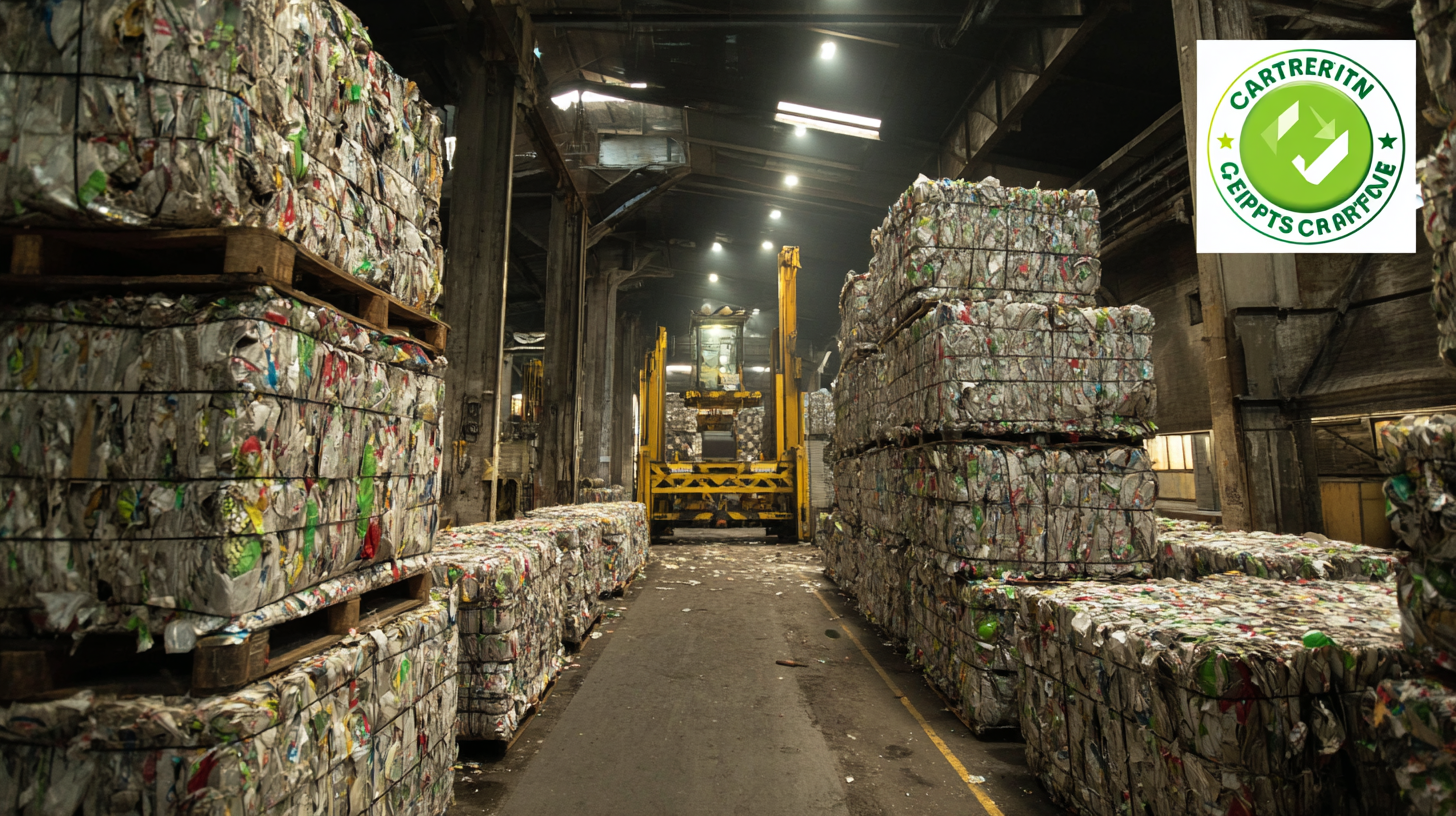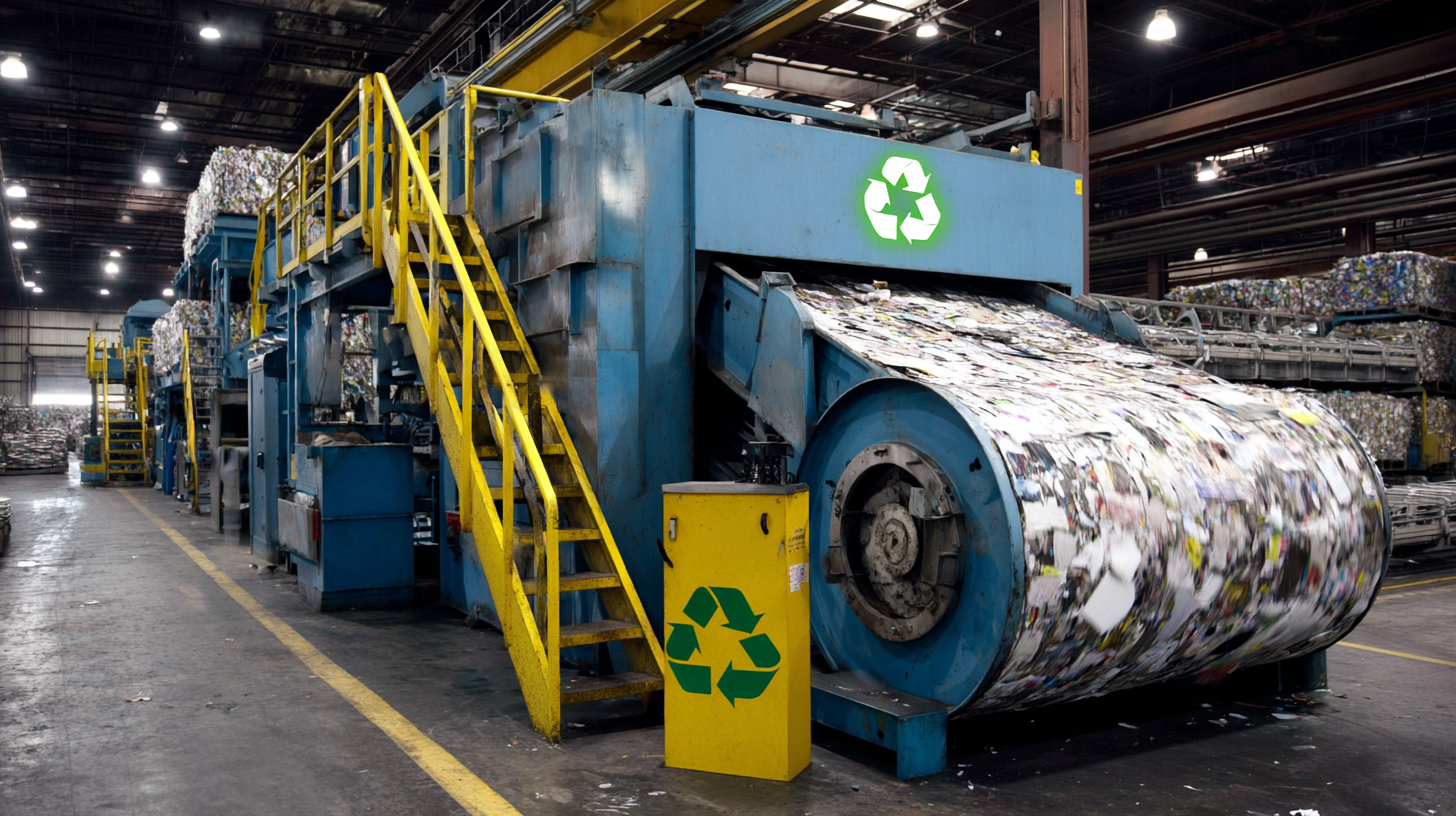
How to Navigate Global Import-Export Certifications for the Best Recycling Machines
The global market for recycling machines is experiencing unprecedented growth, driven by increasing environmental concerns and stringent regulatory requirements. According to a report by MarketsandMarkets, the recycling equipment market is projected to reach $15.20 billion by 2025, growing at a CAGR of 6.4% from 2020. This surge is largely attributable to the rising awareness of waste management and the necessity for sustainable production practices.

However, navigating the complexities of import-export certifications can be daunting for manufacturers and suppliers in this niche. Understanding the specific certifications required for different regions not only ensures compliance but also enhances market access and consumer trust. This blog aims to guide you through the essential import-export certifications related to recycling machines, highlighting their benefits and how they can provide a competitive edge in the evolving recycling industry landscape.
Understanding the Importance of Import-Export Certifications in Recycling
 Navigating the world of import-export certifications is crucial for businesses involved in recycling, particularly when it comes to acquiring the best recycling machines. These certifications serve as a gateway, ensuring compliance with international regulations and standards. A well-structured certification system not only facilitates smoother transactions across borders but also enhances the credibility of the recycling process. Import-export certifications assure stakeholders that the recycling machines in use meet environmental and safety guidelines, which is essential for promoting sustainable practices.
Navigating the world of import-export certifications is crucial for businesses involved in recycling, particularly when it comes to acquiring the best recycling machines. These certifications serve as a gateway, ensuring compliance with international regulations and standards. A well-structured certification system not only facilitates smoother transactions across borders but also enhances the credibility of the recycling process. Import-export certifications assure stakeholders that the recycling machines in use meet environmental and safety guidelines, which is essential for promoting sustainable practices.
Moreover, understanding the importance of these certifications can significantly impact a company's market positioning. Organizations that prioritize certified machinery often gain a competitive edge by demonstrating their commitment to quality and environmental responsibility. As the demand for efficient recycling solutions grows globally, possessing the right certifications can open up new markets and build trust with consumers. Thus, investing the time and resources to navigate certification requirements will ultimately enhance operational efficiency and promote a more responsible recycling industry.
Common Challenges in Obtaining Certifications for Recycling Equipment
Navigating the complexities of certifications for recycling equipment presents multiple challenges that operators must be prepared to face. One of the primary hurdles is the ever-evolving regulatory landscape. Different countries have varying requirements, and manufacturers must stay updated on these changes to ensure compliance. This can be particularly daunting for companies looking to expand internationally, as they need to decipher not only the technical specifications required for machinery but also the local environmental standards.
Another significant challenge is the documentation process, which can be both time-consuming and intricate. Gathering the necessary paperwork, including proof of safety, performance tests, and sustainability reports, can often lead to delays in the certification process. Furthermore, many manufacturers may lack experience with the specific documentation needed for certain markets, ultimately prolonging the time it takes to obtain certifications. Ensuring thorough preparation and understanding of both local and international standards is vital for companies aiming to successfully acquire the certifications needed for their recycling machines.
Key Strategies for Overcoming Certification Hurdles in Global Trade
Navigating the labyrinth of global import-export certifications can be challenging, especially for businesses in the recycling machine industry. According to a report by GlobalData, the recycling market is expected to reach $600 billion by 2025, driven largely by demand for certified sustainable solutions. However, companies often face significant hurdles in complying with various international standards and certifications.
One key strategy to overcome these challenges involves thorough research into the specific requirements of target markets. For instance, the European Union's CE marking and the United States' Underwriters Laboratories (UL) accreditation can be prerequisites for entry into those regions. Companies should also consider partnering with local experts who understand the nuances of regional regulations. This can not only expedite the certification process but also reduce costs associated with non-compliance.
**Tips:**
- **Stay Updated:** Regularly consult industry publications and certification bodies to stay informed about changing regulations.
- **Documentation is Key:** Maintain meticulous records of all materials and processes used in manufacturing to facilitate smoother audits and inspections.
- **Leverage Technology:** Utilize certification management software to streamline compliance processes and keep track of expiry dates for certifications.
Global Import-Export Certifications for Recycling Machines
This chart illustrates the percentage of global recycling machines with different certifications required for international trade. Understanding these certifications is crucial for businesses engaged in the import-export of recycling machines.
Navigating Different Regulatory Standards Across Countries
Navigating the complex landscape of global import-export certifications for recycling machines is crucial for manufacturers and distributors eager to thrive in the international market. Each country has its own set of regulatory standards, which can significantly impact the importation and usage of recycling equipment. For instance, according to a report by the International Trade Centre (ITC), more than 40% of recycling machinery imported into the European Union faces compliance challenges due to variations in safety and environmental regulations.
The United States operates under the Environmental Protection Agency (EPA) regulations, which frequently differ from the stringent standards in countries like Germany and Sweden, known for their rigorous recycling practices. The adoption of the European Union’s Waste Electrical and Electronic Equipment (WEEE) Directive has influenced many countries to align their recycling machine certifications with EU norms, emphasizing the need for a universal understanding of these requirements. The divergence in standards can create barriers for exporters, as evidenced by a recent survey from the World Bank, highlighting that nearly 30% of companies in the recycling sector faced delays due to differing regulatory frameworks in their target markets.
Understanding these regulatory environments is essential not only for compliance but also for fostering innovation in recycling technologies. Companies that proactively engage with these standards can better position themselves to capitalize on the growing demand for efficient recycling solutions worldwide. This strategic approach will enable them to navigate the international market successfully, ensuring their machinery meets the diverse certification requirements across borders.

Essential Documentation Needed for Smooth Import-Export Processes
Navigating the landscape of global import-export certifications is crucial for businesses dealing with recycling machines. One of the pivotal elements in this process is understanding essential documentation that ensures a smooth import-export operation. According to recent regulatory updates, particularly those highlighted in India’s Foreign Trade Policy of 2023, businesses must familiarize themselves with new documentation requirements. This policy aims to streamline procedures and enhance economic progress, underscoring the importance of proper certifications in facilitating international trade.
For companies engaged in exporting or importing recycling machines, there are several key documents that must be prepared. A study indicates that approximately 70% of delays in shipping are due to documentation errors. Essential documents include the commercial invoice, packing list, bill of lading, and any required certificates of conformity or quality standards relevant to recycling equipment. Moreover, it’s vital to stay updated on specific country regulations, as compliance can vary significantly. For example, Vietnam's import-export procedures necessitate a clear understanding of registration, licensing, and customs requirements, which are essential for any logistics provider looking to enter that market effectively.